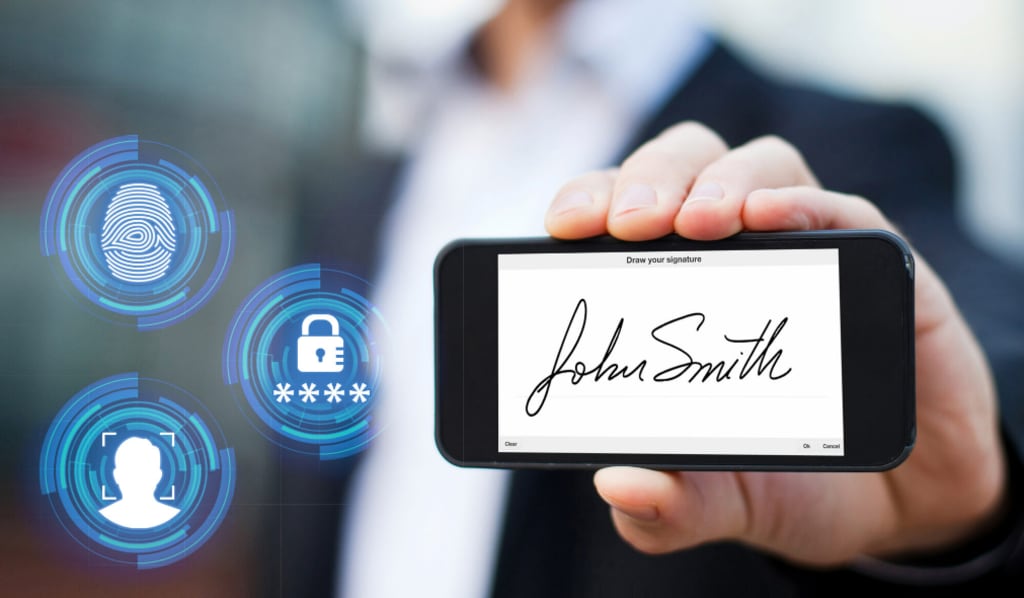Philippine Education Sector Embraces E-Signature for Online Learning
E-Signature for Online Learning

Introduction
The rapid shift to digital platforms has significantly transformed the educational landscape globally, and the Philippines is no exception. With the growing need for remote learning solutions, the adoption of e-signature Philippines has emerged as a pivotal development in the education sector. As schools and universities strive to maintain administrative efficiency and academic integrity in an online environment, electronic signatures are becoming essential tools for managing documents and authenticating transactions. This article explores how the education sector in the Philippines is embracing e-signature technology and highlights the legal framework and solutions driving this transformation.
The Rise of E-Signature Technology in Education
The adoption of e-signature solutions in the Philippines has accelerated with the shift towards online learning. As educational institutions grapple with the logistical challenges posed by remote operations, electronic signatures offer a streamlined approach to handling documents such as enrollment forms, academic records, and faculty contracts. The ability to sign documents digitally not only enhances efficiency but also ensures compliance with regulatory standards and reduces the need for physical interactions, crucial in maintaining social distancing measures during the pandemic.
E-signature Philippines technology simplifies document management by enabling students, faculty, and administrators to sign forms electronically. This shift towards digital processes has been a game-changer for educational institutions, particularly in terms of reducing paperwork, minimizing errors, and expediting administrative workflows.
Legal Framework for E-Signatures in the Philippines
The legal acceptance of e-signatures in the Philippines is governed by Republic Act No. 8792, commonly known as the E-Commerce Act of 2000. This law provides the foundation for recognizing electronic documents and digital signatures as valid and enforceable. According to the Philippines e-signature law, an electronic signature is legally equivalent to a handwritten signature, provided that it meets certain criteria related to authentication, integrity, and consent.
The Philippines e-signature law stipulates that an electronic signature must be uniquely linked to the signatory, capable of identifying the signatory, and created using means that the signatory can maintain under their sole control. Additionally, any alteration to the electronic document must be detectable to ensure the integrity of the signed content. These requirements ensure that e-signatures are secure and reliable, making them suitable for educational and administrative use.
UNAWA and SignSecure
A key player in the e-signature landscape in the Philippines is UNAWA, a pioneering legal tech company. UNAWA's SignSecure platform stands out for its innovative use of facial recognition biometric technology, making it the only e-signature platform in the country to offer such a feature. This technology enhances the security and authenticity of electronic signatures, providing educational institutions with a reliable solution for document signing and verification.
Implementing E-Signature Solutions in Education
Educational institutions in the Philippines are leveraging e-signature solutions to facilitate various administrative and academic processes. The integration of e-signature technology into educational workflows has numerous benefits, including:
Enrollment and Registration
The enrollment and registration process, traditionally paper-intensive, can be streamlined using e-signature solutions in the Philippines. Students and parents can electronically sign application forms, consent forms, and agreements from anywhere, eliminating the need for physical presence and reducing administrative overhead. This convenience is particularly beneficial for international students and those residing in remote areas.
Academic Records and Transcripts
Managing academic records and transcripts is another area where e-signatures are making a significant impact. Institutions can issue and authenticate digital transcripts, diplomas, and certificates using digital signatures. This not only speeds up the process but also enhances the security and authenticity of these important documents. Students can easily request and receive their records online, facilitating smoother transitions between educational levels and institutions.
Faculty Contracts and Agreements
For educational institutions, managing faculty contracts and agreements digitally is crucial for operational efficiency. E-signatures enable the swift execution of employment contracts, adjunct agreements, and research collaboration agreements. The ability to sign and store documents electronically simplifies the contract management process, reduces delays, and ensures compliance with institutional policies.
Student and Faculty Permissions
Obtaining permissions for various activities, such as field trips, research projects, and extracurricular events, often requires signed consent forms. E-signature technology allows these forms to be distributed, signed, and returned electronically, streamlining the approval process and ensuring that all necessary permissions are obtained in a timely manner.
Security and Compliance Considerations
While the adoption of e-signatures offers numerous benefits, it is essential to address security and compliance concerns. The use of digital signatures ensures that electronic documents are tamper-proof and that the identity of the signatory can be verified. This is particularly important in the education sector, where the authenticity of documents such as transcripts, diplomas, and academic records must be maintained.
Legal e-signature Philippines solutions adhere to strict security standards, including encryption and secure authentication methods, to protect the integrity of electronic documents. Institutions must ensure that their e-signature platforms comply with these standards to avoid potential legal and security issues.
UNAWA's SignSecure: Enhancing Security with Biometrics
UNAWA’s SignSecure platform incorporates facial recognition biometric technology to further enhance the security of e-signatures. This advanced feature provides an additional layer of authentication, ensuring that the signatory is who they claim to be. For educational institutions, this means greater confidence in the validity of signed documents and reduced risk of identity fraud.
Benefits of E-Signature Adoption in Education
The integration of e-signature Philippines technology in educational institutions offers several advantages:
Efficiency and Convenience
E-signatures eliminate the need for physical document handling, reducing the time and effort required to process forms and agreements. This efficiency translates into faster administrative workflows, allowing staff to focus on more strategic tasks.
Cost Savings
By reducing the reliance on paper-based processes, institutions can achieve significant cost savings on printing, mailing, and storage. E-signature technology also minimizes the environmental impact associated with paper usage.
Enhanced Security
Digital signatures provide robust security features, including encryption and audit trails, which protect the integrity of signed documents and ensure compliance with legal requirements.
Improved Accessibility
E-signature solutions enable students, parents, and faculty to sign documents from anywhere, using any device with internet access. This accessibility is particularly valuable in a remote learning environment, where physical presence is not always feasible.
Compliance and Legal Validity
The use of e-signatures in compliance with Philippines e-signature law ensures that electronically signed documents are legally valid and enforceable. Educational institutions can confidently rely on e-signatures for a wide range of administrative and academic purposes.
Challenges and Considerations
Despite the numerous benefits, the adoption of e-signatures in the education sector comes with challenges. Institutions must address issues related to digital literacy, resistance to change, and the integration of e-signature solutions with existing systems.
Digital Literacy and Training
Not all students, parents, or faculty members may be familiar with e-signature technology. Educational institutions need to provide training and support to ensure that users understand how to sign documents electronically and are comfortable using the technology.
Resistance to Change
The transition from traditional paper-based processes to digital signatures may encounter resistance from those accustomed to manual methods. Change management strategies, including clear communication of the benefits and support during the transition, can help mitigate this resistance.
System Integration
Integrating e-signature solutions with existing educational management systems can be complex. Institutions must ensure that their e-signature platforms are compatible with other digital tools used for student information management, document storage, and communication.
The Future of E-Signatures in Education
The adoption of e-signature technology in the Philippine education sector is expected to continue growing as institutions seek to enhance their digital capabilities. Future developments in e-signature solutions may include more advanced authentication methods, such as biometrics and blockchain technology, further improving the security and reliability of electronic signatures.
Potential Innovations
As e-signature technology evolves, educational institutions may benefit from innovations such as:
Biometric Authentication: The integration of biometric features, such as fingerprint or facial recognition, can enhance the security of e-signatures and provide additional verification methods.
Blockchain Technology: The use of blockchain for e-signature validation can create immutable records of signed documents, ensuring that they cannot be altered or tampered with.
AI and Machine Learning: AI-powered solutions can streamline the e-signature process by automating document preparation, identifying potential errors, and providing intelligent recommendations.
Broader Adoption
The success of e-signature implementations in leading institutions may encourage broader adoption across the education sector. Smaller schools and universities, as well as other educational entities such as training centers and online course providers, are likely to explore e-signature solutions to enhance their digital capabilities and improve administrative efficiency.
Conclusion
The Philippine education sector is rapidly embracing e-signature technology as a vital tool for managing administrative and academic processes in an increasingly digital environment. The adoption of e-signature Philippines solutions provides numerous benefits, including improved efficiency, enhanced security, and cost savings. As institutions navigate the legal and compliance landscape, they can rely on robust e-signature platforms like UNAWA's SignSecure to ensure the authenticity and integrity of their electronic documents. With continued advancements in e-signature technology and broader acceptance within the education sector, e-signatures are poised to become an integral part of the digital transformation journey for educational institutions in the Philippines.
About the Creator
PKR AG
I love writing compelling stories.
Enjoyed the story? Support the Creator.
Subscribe for free to receive all their stories in your feed. You could also pledge your support or give them a one-off tip, letting them know you appreciate their work.





Comments
There are no comments for this story
Be the first to respond and start the conversation.